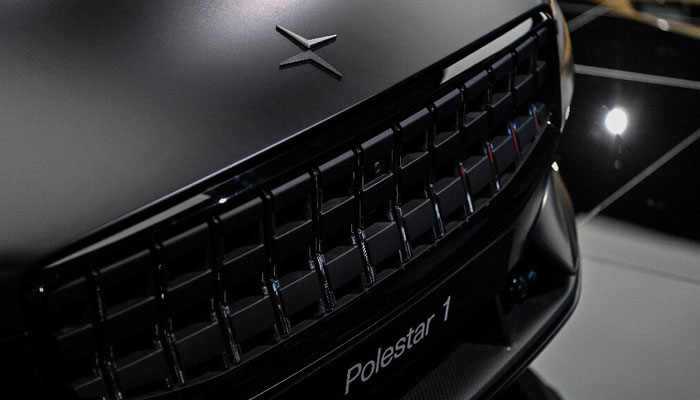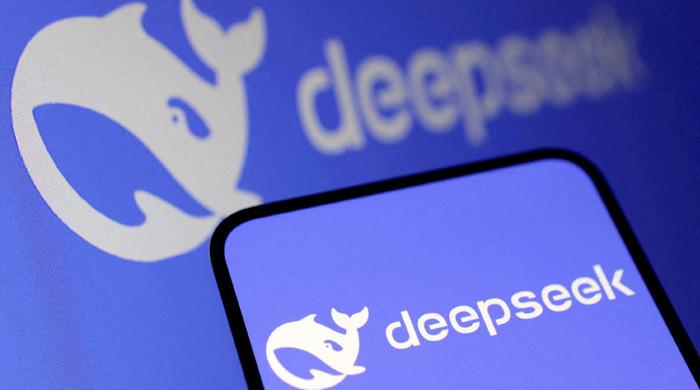Swedish electric carmaker Polestar to go public
Polestar, a competitor to Tesla in electric car manufacturing, is targeting annual unit sales of around 290,000 by 2025
September 28, 2021

STOCKHOLM: Electric car maker Polestar, controlled by Sweden's Volvo Cars and its Chinese owner Geely, said on Monday it plans to go public in a stock market debut that could value it at around $20 billion (17 billion euros).
Polestar, a European competitor to Tesla, said in a statement it would be used to "help fund significant investment in the expansion of its products, operations and markets to create a leading company in the rapidly growing global premium electric vehicle market."
While Polestar -- whose shareholders include US film star Leonardo DiCaprio -- has only produced two models since being set up in 2017, its market capitalisation would place it just behind giant Nissan, and ahead of carmakers Renault and Subaru.
Tesla is the highest-valued carmaker in the world, with a market capitalisation of more than $750 billion -- more than three times that of Toyota or Volkswagen, which both sell many more cars.
The listing will be carried out by combining Polestar with a special purpose acquisition company (SPAC), Gores Guggenheim, set up by US investment firms The Gores Group and Guggenheim Capital and is expected in the first half of 2022.
The newly formed company will be named Polestar Automotive Holding UK Limited.
Founded by Volvo and Geely four years ago, Polestar sold only 10,000 vehicles in 2020, but is targeting annual unit sales of around 290,000 by 2025.
Its current model is the Polestar 2, with plans to launch the Polestar 3 next year.
The $20-billion market capitalisation is equivalent to three times the targeted revenue in 2023 and 1.5 times expected sales in 2024, the company said.
That compares with a market capitalisation of $40 billion for US start-up Lucid Motors and around $30 billion for China's Xpeng.
Together with battery maker Northvolt, the company is the Swedish flagship in the electric car sector.
- Bumpy ride? -
While a clutch of new faces have emerged in the electric vehicle market recently, some have had a bumpy ride.
The Californian pickup manufacturer Rivian, backed by Ford and Amazon, should soon join them with a strong capitalisation.
"The transition to electric vehicles is generating a lot of market enthusiasm," said analyst Alexandre Marian of AlixPartners.
"In some cases, very high valuations suggested that the growth trajectory would be faster than Tesla. But the risk is high ... it's extremely complicated to grow as a car manufacturer."
China's Li Auto raised $1.1 billion from its Nasdaq debut last year, but then saw its share price tumble in Hong Kong last month amid tech regulatory crackdowns from Beijing.
US electric pick-up constructor Lordstown Motors, for its part, announced in June it did not have the funds to produce a vehicle on a commercial scale.
Its general director stepped down days afterwards on the production woes but also amid allegations he and other executives had given inaccurate information about pre-orders.
"It's really more difficult for a small firm to succeed" in the auto industry as "fixed costs are very high", explains Jessica Caldwell of Edmunds.
They require not only a large factory, but also a reliable supply chain for parts.
Polestar brings with it the "dynamism of a young enterprise", and also benefits from "the industrial heritage and expertise of Volvo," chief executive Thomas Ingenlath told investors.
Polestar, initially a hybrid sports car for Volvo Cars, became a separate brand in 2017.
In order to achieve its ambitious expansion goals, the marque intends to launch a model each year over the next three years -- a luxury sports SUV is expected to follow Polestar 2 next year with Polestar 4 a luxury saloon.
It also plans to push an online presence and open a number of concessions in large urban centres, while making use of Volvo's after-sales network.











